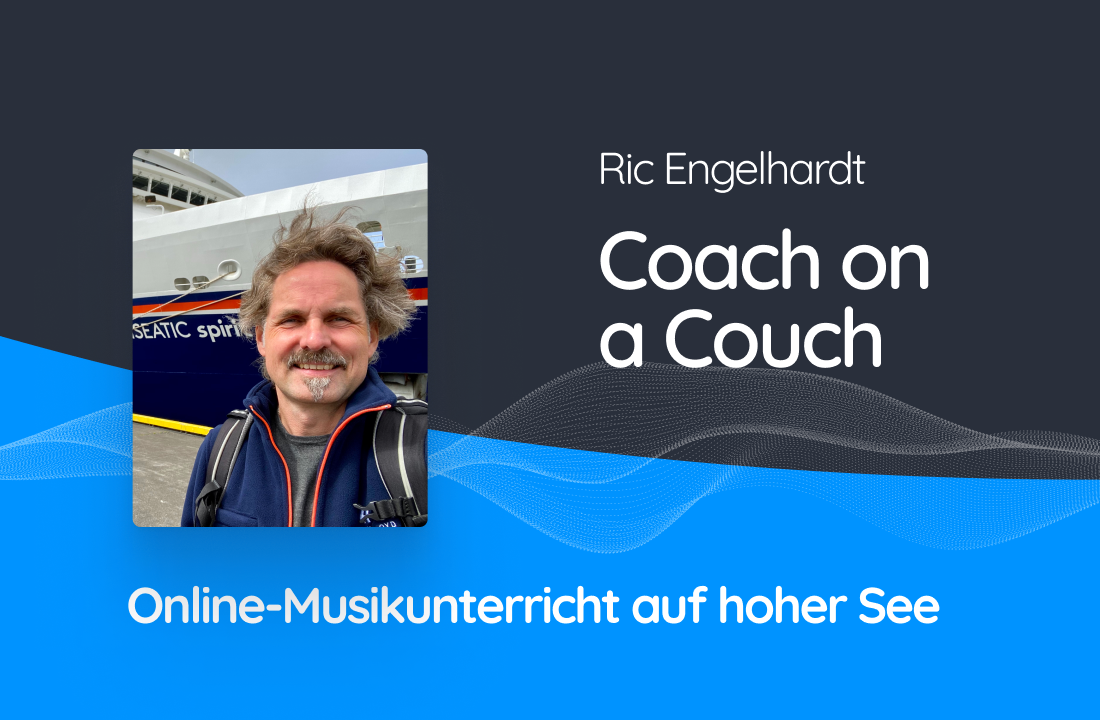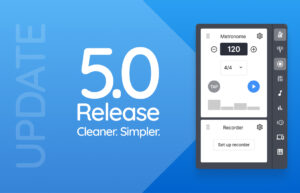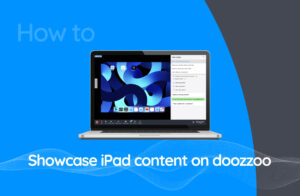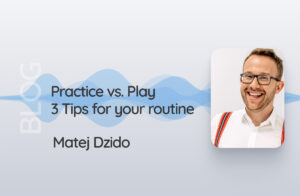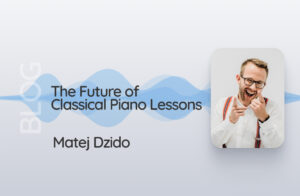For today’s special episode, we have a fascinating guest again. Ric Engelhardt is a studied jazz pianist, keyboarder, and much more. Live from Berlin, he tells us what he’s been up to and shares his many years of experience with online music lessons. He has also been teaching music students under extraordinary conditions. Discover what it’s like to teach from a ship and what it means to be an ocean pianist in the latest edition of Coach on a Couch Special!
Listen to the podcast in German or read the recap in english language below. Enjoy this great story!
Please introduce yourself to us
Ric: “I’d love to. I’m Ric Engelhardt, a musician living in Berlin. I’ve been making music all my life. I started learning the piano when I was a little boy. After I started going to school, there was no question of trying anything else or taking up another profession. It was a pretty straightforward path. I studied jazz piano in Berlin and have lived there ever since.
It all turned out well. The many bands, projects, and contacts you make during this time are a great advantage for studying music. I liked making music together, being with other crazy people, having music on my brain all day, meeting new people, and trying many things. That’s why I’ve been interested in many different things ever since.
If I had to limit myself to one thing, it would be being a musician. But the whole field of music, media, and learning interests me. I play myself and enjoy being on stage with bands as well as in shows. I am also a musical director for artists and singers. I have also enjoyed teaching for many years. I have also written three piano books. For an instrument company, I am on the road as a promoter. I also work as a music editor for a TV program. I like that versatility.”
You’ve been teaching for a very long time, including online. How long exactly?
Ric: “Actually, in the end, it was 25 years that I was already teaching in music schools. Before that, I had taught people privately for a year or two. I wouldn’t be a hundred percent teacher if I just taught.
Sometimes it’s one or two days a week, sometimes three days. I like that in conjunction with playing live and being on stage. There’s always this curiosity right and left. What’s new? What’s new in music and technology? The whole media business fascinates me. It’s not just about playing on stage but also seeing how things work behind the scenes. I can give my students a lot of practical experience and background knowledge.
These are the so-called soft skills. It’s not just “I’m going to teach you something on the piano”. There is an infinite amount of musical material you can learn, but often it is too theoretical.
However, teaching is also about a good student-teacher relationship and the fun of playing live. You can encourage the students to do this and give them valuable tips. Only then can you give music lessons that the students enjoy. They start to realize why they are doing something right now. What are they learning something for right now?
When I was a child, I hated it when I just had to do any exercises. I was told to do these or practice this or that through all 12 keys. I always avoided it. But you’re motivated if you know what you’re doing it for.
Motivation is something we all need. The more we do and think outside the box, the bigger our big picture becomes.”
How and why did you start teaching music online?
Ric: “It started ten to twelve years ago. My initial spark for it was a student that I still have. She’s from Seattle in the US. She still has family there. Right now, she lives in Berlin. She is not a professional musician but loves playing the piano. So once or twice a year, she flies back there and stays for a few weeks.
Then the question came up: What will we do during these few weeks? I could have given her material for the whole time, but the personal exchange was vital to us. We often worked on songs, or she sent recordings of herself. So it was necessary to give feedback now and then. At that time, we even used Skype. That was exciting. It opened up a new world for me.
Then it started with her. Shortly after that, I had a student who was seven or eight years old. He was musically talented and a technology enthusiast because his father was a bit into this keyboard/music electronics thing. So when we didn’t get together in terms of time and place, we did music lessons online.
That helped me get used to it over time. But, of course, that includes the limitations that come with it. I’m very pragmatic about it. It’s not about what works and what doesn’t. It’s a possibility. You make the best of the advantages.
Later, I traveled around a lot over the years. Be it a small tour or my boat trips. Sometimes you’re on the road for a few weeks.”
You talked about boat trips. How do an expedition ship and music fit together for you?
Ric: “The two things go together wonderfully for me. It’s not a research ship, either. It’s not like I’ve been sailing around with scientists now. I’ve been traveling as an ocean pianist for several years. The last trip was this year with the Hanseatic Spirit. There’s a maximum of 230 passengers on that—therefore, a small group and none of these huge cruise giants. Because the ship is small and maneuverable, you can go into bays or other places that the big ships can’t even get to.
I like that. I love the sea and traveling. It’s nice to play the bar piano, which is the primary job of an ocean pianist. You sit there at set times, and depending on the time of day, the weather, and the people’s mood, you play from a repertoire as extensive as possible.
I went along for about a month. We started in Hamburg and went from Scotland and Shetland Islands to Iceland. There we stopped in bays or anchored off the coast. That was wonderful. You got to see and experience a lot.”
What was the arrangement like with your students?
Ric: “I told my students in advance, of course. If someone didn’t want this lesson, we would have made up the lesson and provided practice materials if needed. Of course, I would have accepted that, but no one chose that option. So accordingly, for me, it just kept going.”
How exactly can one imagine your daily routine as an ocean pianist?
Ric: “There are usually two things on board these cruise ships. There’s the onboard band with a pianist and a keyboard player. In addition, there is the bar pianist. One of the advantages of that is that, with a few exceptions, the schedule is always the same.
As an onboard band, you can only plan sometimes. Sometimes an artist comes on board, sometimes, there is an afternoon rehearsal, or sometimes a pool party is prepared. As a pianist, I had three spots a day—one at coffee and tea time, one before dinner, and the last one afterward into the evening.
This was good in several ways because I wanted to see the country and the people. As soon as I wasn’t playing or teaching, I was always anxious and willing to be outside. That’s the beauty of having set work hours and commitment as a musician.”
What times were you able to teach then? What did online music lessons look like specifically?
Ric: “It was clear that I couldn’t manage fixed times for online music lessons. On the ship, there’s always a drill or safety briefing. You also have to write a safety test once in a while. So you always have little things in the daily schedule that you must be there for.
So I tried to do a mixture of that. On the one hand, I taught in real-time; on the other hand, I gave the students assignments. That suited my teaching very well. They could then work independently and still keep in regular contact with me.
The doozzoo media library was perfect for this. Recording and sending audio and video recordings worked wonderfully. This is precisely how I envision my hands-on teaching. I can leave notes and audio for [my students] to watch anytime. They can send me feedback and ask questions. We can even do markups on the sheet music. That’s awesome!
That was one thing that was very compatible with shipboard life and working there. The internet connection was also excellent. Much better than I expected it to be. Sure, you may be just at sea for two days, or there’s severe weather.
That’s where the media library comes in perfectly. Working completely paperless is not to be underestimated. You have everything you need for music lessons and no more lugging around. I love the options we have these days, having tons of material with us digitally. I can be gone for weeks and still have access to everything.”
